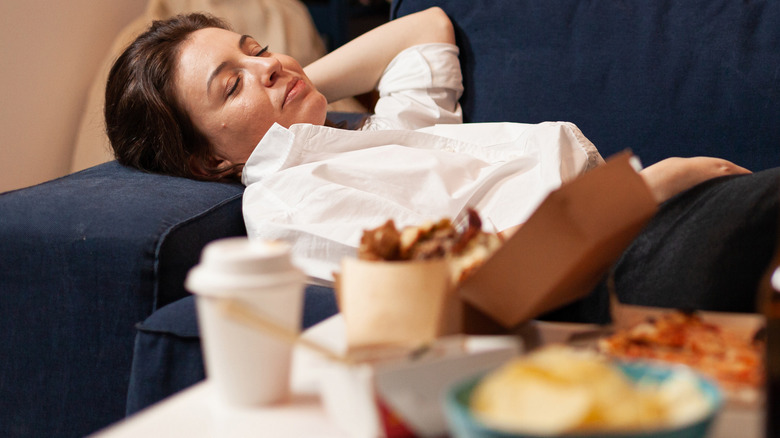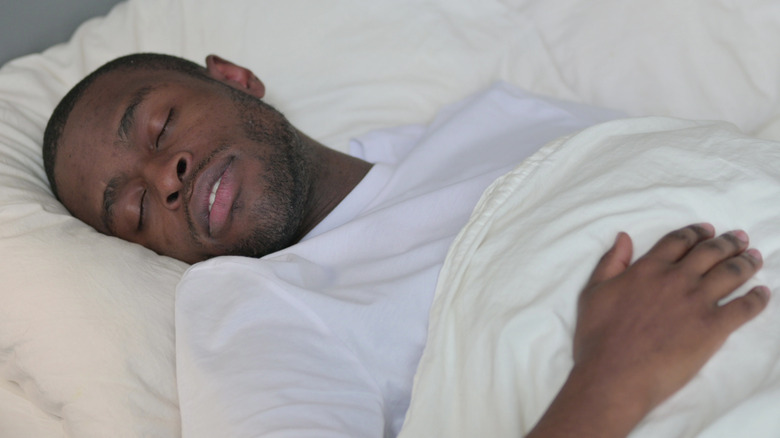Why You Should Think Twice Before Lying Down After Eating
After a hearty meal, there's nothing better than kicking up your feet and falling backward onto the closest couch. While certain foods can pump us up with energy, others can make us feel sleepy such as pasta, cheese, rice, white bread, or chicken, according to the Cleveland Clinic. While a nap certainly sounds appetizing, you may want to hold off on reclining just yet. Otherwise, you may subject yourself to some uncomfortable digestive symptoms.
Explaining how our digestive system responds when we lay down post-meal, Dr. Peyton Berookim, a double board-certified gastroenterologist at the Gastroenterology Institute of Southern California, tells Well + Good, "When you lie down after eating, there is a possibility that the food you just ingested—which has made its way through your esophagus and to the entrance of your stomach—will make its way backwards, now with some of the acids of the stomach, and up into your throat."
Dr. Berookim goes on to say that this can result in reflux symptoms such as a sour taste in the mouth, burping, coughing, or burning sensations in the throat or chest. In addition to reflux symptoms, those who lay down immediately after eating may also experience symptoms of indigestion, explains Healthline. Such symptoms can include feelings of uncomfortable fullness, abdominal pain, gas, bloating, and nausea.
How long you should wait to lay down following a meal
"There aren't really any types of conditions or scenarios in which we recommend reclining after eating," explains Dr. Berookim to Well + Good. "It just goes against the natural direction of gravity that promotes healthy digestion." Rather, Dr. Berookim suggests that you're better off remaining vertical after eating. This is particularly true for those with certain health conditions such as gastroesophageal reflux disease (GERD) or hiatal hernia. So how much time should we let pass before we kick back and relax?
Experts suggest leaving a 30-minute window between eating and fully lying down (per Well + Good). If you're sitting in a way in which you're only slightly leaning back but your head is elevated, there's little harm in reclining following a meal. Dr. Berookim suggests aiming for a 45-degree angle. However, experts suggest leaving a substantially larger window of time — at least two to three hours — between eating and lying down prior to bedtime.
If you're susceptible to indigestion, Healthline suggests avoiding food items known to prompt symptoms, engaging in regular exercise, and substituting five or six smaller meals each day in place of three larger ones.


